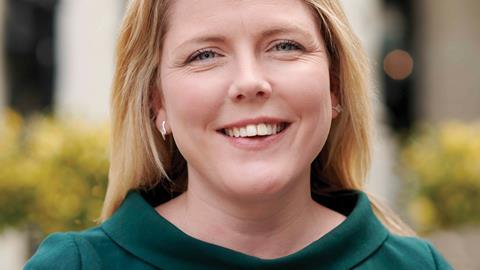Commercial property lawyer at gunnercooke
I pursued a legal career because it was a way of getting involved in many different types of business. I knew that working as a lawyer would be challenging and offer plenty of variety. I enjoy facilitating transactions and helping navigate a way forward for my clients.
Simmons & Simmons was a great firm in which to train. The learning curve was steep and we worked hard, but there was a wide range of opportunities. I spent my third seat on secondment to a client and my final six months working with the dispute resolution team in Hong Kong. It opened my eyes to the realities of being a City lawyer and what was expected in a traditional firm.
I moved to Nabarro (now CMS) on qualification. Both firms had strong property teams and offered a great range of transactional experience, but I became concerned about the feasibility of balancing the demands of a traditional firm with family life, particularly as my husband is also a lawyer. In 2011, seeking an improved work-life balance with the arrival of my first child, I joined Lawyers on Demand and began working on a freelance basis. I loved the freedom of working flexibly but the work I was involved in was mostly transactional support and due diligence. I missed speaking to clients and the general buzz of transactional work.
I began to look for a role that would allow me to do the type of work I most enjoyed. I wanted direct client contact and the ability to build longer-term work streams and client relationships, while also retaining control over the amount of work I did and the flexibility to spend time with my children.
I moved to gunnercooke in 2015. The culture is completely different to a traditional law firm. The model is slightly more akin to a barrister’s chambers, though we do work collectively in teams of our choosing.
Lawyers who work four days a week should only be given 80% of the usual workload, rather than ending up working five days in four
Besides being lawyers we are individual business owners with the autonomy to develop our practices in any direction. We are all driven to succeed and take pride in what we do, but equally we have the freedom to do so on our own terms. As a result, the culture is collaborative and supportive. There is a wealth of experience and expertise on tap, and people are generous with their time. Our way of working has attracted fantastic clients and we are involved in some great deals. So although now I am acting on a wider range of transactions, the quality of work remains the same.
I love being involved in redeveloping areas that have fallen into neglect. I was part of the team acting for Quintain in connection with the Wembley regeneration scheme and I have also had the privilege of acting for Urban Splash in connection with the financing of town centre developments in Birmingham and Manchester. More generally, I also enjoy getting to know clients and their assets really well, and putting in place systems to increase efficiencies and streamline transactional work.
It is a huge challenge to juggle a demanding career, often with relatively inflexible hours, around the needs of a young family. It becomes even harder when both parents have demanding roles. This is an issue for all working parents, not just women. It can also be very difficult for those with other outside obligations, such as the care of elderly relatives, to advance their careers in a traditional law firm environment.
Flexibility is key in maintaining the balance, but it has to work both ways. I still need to get the work done and be available for clients when they need me, but I am free to design my life around that. I pick my children up from school and spend the late afternoon with them a couple of times a week. I attend and enjoy sports day and the Christmas nativity without the accompanying stress of arriving late to the office. I live in Sevenoaks, so if I am working from home I sometimes try and fit in a run through the local countryside during my lunch break too.
More effort needs to be put into making part-time working a viable possibility. For example, ensuring that lawyers who work four days a week are only given 80% of the usual workload, rather than ending up working five days in four. Firms also need to start actively encouraging flexible working and recognising that hours put in from home and/or outside office hours are equally valid and valuable. Lawyers should be judged by their overall productivity and contribution to the firm, rather than the proportion of time spent in the office.
































No comments yet